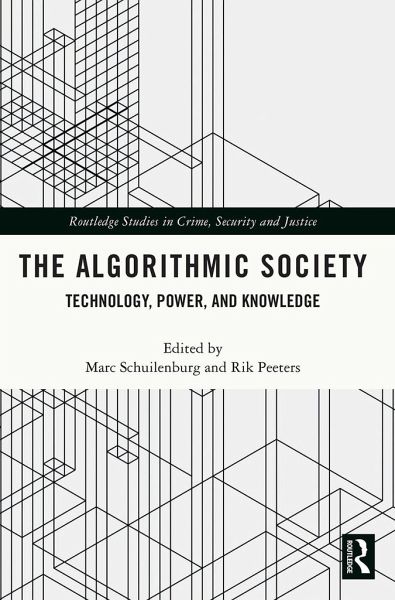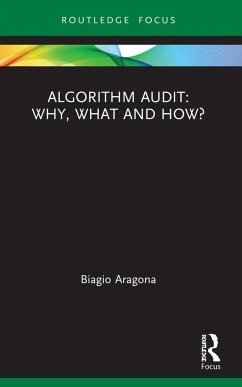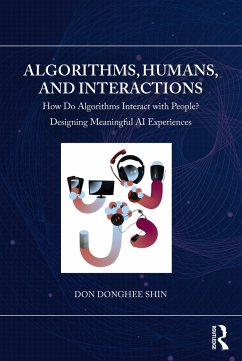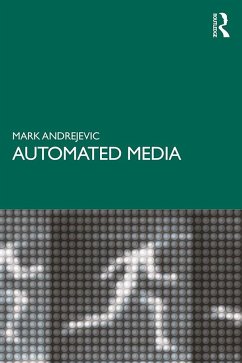
The Algorithmic Society
Technology, Power, and Knowledge
Herausgegeben: Schuilenburg, Marc; Peeters, Rik
Versandkostenfrei!
Versandfertig in 6-10 Tagen
45,99 €
inkl. MwSt.

PAYBACK Punkte
23 °P sammeln!
We live in an algorithmic society. Algorithms have become the main mediator through which power is enacted in our society. This book brings together three academic fields - Public Administration, Criminal Justice and Urban Governance - into a single conceptual framework, and offers a broad cultural-political analysis, addressing critical and ethical issues of algorithms.Governments are increasingly turning towards algorithms to predict criminality, deliver public services, allocate resources, and calculate recidivism rates. Mind-boggling amounts of data regarding our daily actions are analysed...
We live in an algorithmic society. Algorithms have become the main mediator through which power is enacted in our society. This book brings together three academic fields - Public Administration, Criminal Justice and Urban Governance - into a single conceptual framework, and offers a broad cultural-political analysis, addressing critical and ethical issues of algorithms.
Governments are increasingly turning towards algorithms to predict criminality, deliver public services, allocate resources, and calculate recidivism rates. Mind-boggling amounts of data regarding our daily actions are analysed to make decisions that manage, control, and nudge our behaviour in everyday life. The contributions in this book offer a broad analysis of the mechanisms and social implications of algorithmic governance. Reporting from the cutting edge of scientific research, the result is illuminating and useful for understanding the relations between algorithms and power.Topics covered include:
Algorithmic governmentality
Transparency and accountability
Fairness in criminal justice and predictive policing
Principles of good digital administration
Artificial Intelligence (AI) in the smart city
This book is essential reading for students and scholars of Sociology, Criminology, Public Administration, Political Sciences, and Cultural Theory interested in the integration of algorithms into the governance of society.
Governments are increasingly turning towards algorithms to predict criminality, deliver public services, allocate resources, and calculate recidivism rates. Mind-boggling amounts of data regarding our daily actions are analysed to make decisions that manage, control, and nudge our behaviour in everyday life. The contributions in this book offer a broad analysis of the mechanisms and social implications of algorithmic governance. Reporting from the cutting edge of scientific research, the result is illuminating and useful for understanding the relations between algorithms and power.Topics covered include:
Algorithmic governmentality
Transparency and accountability
Fairness in criminal justice and predictive policing
Principles of good digital administration
Artificial Intelligence (AI) in the smart city
This book is essential reading for students and scholars of Sociology, Criminology, Public Administration, Political Sciences, and Cultural Theory interested in the integration of algorithms into the governance of society.














